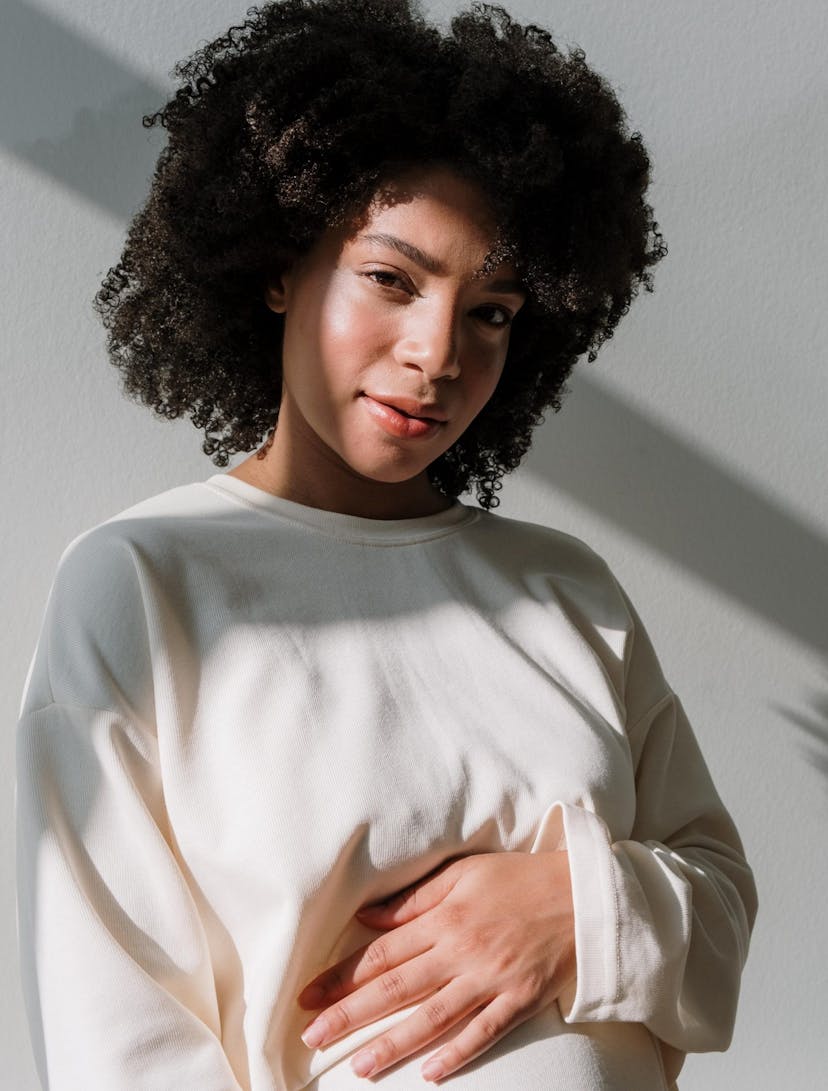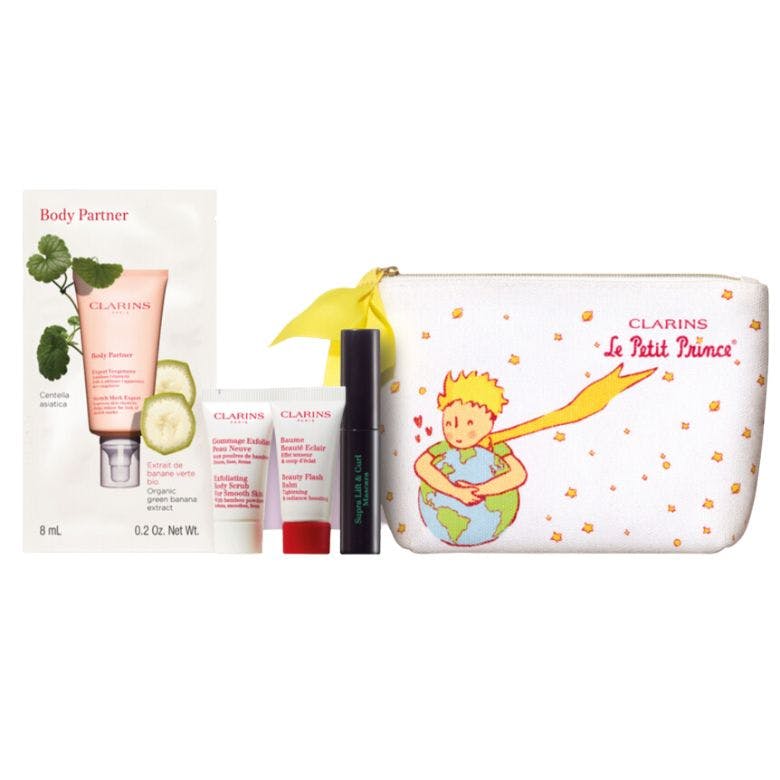Nutritionists Approved Pregnancy Vitamins To Nurture You And Your Bump
6 minutes read
Pregnancy is such a fickle chapter where your physical and emotional well-being goes into a rollercoaster: excitement and exhilaration, fear, and fun – all at the same time. It’s also when many maternity questions start to pop, such as: What ingredients to avoid? and Can you fake tan when pregnant? What are doctor-approved pregnancy exercises and the best vitamins for pregnancy to take?
Today, we’ll be shedding some light on pregnancy vitamins. We ask top nutritionists about the importance of pregnancy vitamins and the ones to take and avoid to nurture you and your bump.
When should I start taking vitamins for pregnancy?
“Certain supplements are important for healthy growth and development of the baby and should be taken from as early as three months before conception. This period allows for any nutritional deficiencies to be corrected while the eggs are maturing,” Registered Associate Nutritionist Eli Brecher (ANutr) and Founder of Eli Brecher Nutrition tells Beauty Daily.
What is the importance of taking pregnancy vitamins?
“Micronutrient requirements considerably increase during pregnancy, and it is advised to supplement with folic acid and vitamin D while pregnant,” says Marilia Chamon, Registered Nutritionist Therapist and Founder Of Gutfulness Nutrition.
Adding: “While some women may be able to meet the daily recommended intake of other vitamins and minerals through diet alone, it may not be the case for everyone. Those with dietary restrictions such as food allergies or intolerances or following a strict vegan diet may need supplementation to avoid deficiencies.”

What pregnancy vitamins should I take?
Folic acid
Taking folic acid is crucial as soon as you find out you’re expecting or trying to conceive.
“Folic acid can prevent neural tube defects. It [AKA folate] can be found in certain foods, such as broccoli, spinach, kale, beans, lentils, chickpeas, and sunflower seeds. These can be helpful to include in the diet, but you will still need to take folic acid supplements,” says Brecher.
The NHS advises taking 400mg of folic acid every day until the end of the first trimester (12 weeks).
Chamon notes that some women do not metabolise folic acid (the synthetic version of folate) into folate, which may impact absorption.
“Individuals (not just women) that have genetic mutations would have a problem converting the synthetic form to its usable form. You can find out if that is the case via a genetic test,” Chamon explains.
“In this case, it is advised to use a multivitamin which contains a more absorbable form of folate such as Inessa’s Pregnancy Multi,” she recommends
Vitamin D
How much vitamin D supplement should I take during pregnancy?
Brecher says it is also recommended to take a daily vitamin D supplement of 10 micrograms (mcg) whilst pregnant and breastfeeding.
Everyone needs vitamin D. It is vital for a healthy immune system but crucial, especially in pregnancy, as it helps develop your baby’s bones, teeth, kidneys, heart, and nervous system.
“However, many people are not getting enough, particularly in the winter months where we do not get much sunlight here in the UK and several other countries,” Brecher says.
The NHS advises supplementing your diet with vitamin D during autumn and winter between October and early March. You can also boost your diet with sources of vitamin D.
Brecher recommends including “milk, fortified plant-based milk alternatives, fish (up to 2 portions a week, avoid mercury-rich fish like swordfish, marlin and bluefin tuna during pregnancy). In the UK, the guidance for pregnant women is to consume British Lion eggs or to ensure the eggs are well-cooked such as hard-boiled eggs.”
B vitamins
“Another important vitamin group when it comes to fertility and a healthy pregnancy is the B vitamins, particularly if you have been taking the oral contraceptive pill for many years, as this may deplete the body of specific B vitamins.
B vitamins are involved in energy production at a cellular level. Therefore, maintaining optimal B vitamins through supplementation will help support energy levels, especially if you struggle to eat a varied diet due to nausea,” says Brecher.
Choline
Another supplement recommended to take during pregnancy is choline. It plays a vital role in the baby’s brain development and helps to prevent abnormalities of the brain and spine.
“Choline is a nutrient that plays a crucial role in the development of the brain, tissue, and nervous system in pregnancy, especially in the early stages and even before conception.
Dietary sources include eggs, fish, and red meat, as well as lower amounts of sesame seeds, cauliflower, and edamame, but supplementing can be helpful to obtain adequate amounts, particularly if your diet is low in animal products,” Brecher explains.
What vitamins should pregnant women avoid?
“Steer clear of any supplements and multivitamins containing vitamin A (retinol), including cod liver oil, as too much vitamin A can harm your baby’s development,” says Brecher.
The NHS also advises avoiding liver, liver pâté, liver sausage and fish liver oil supplements because these are incredibly high in vitamin A.
Studies show that too much vitamin A may impact your baby’s development.
“Many herbal supplements are also considered unsafe in pregnancy, so it’s best to check with your doctor before taking anything new,” adds Brecher.
What vitamins can one still take during pregnancy?
“How much to supplement and what to supplement apart from folate and vitamin D depends on each person and their diet and lifestyle – if you have nutritional deficiencies, dietary restrictions or genetic mutations, for example, your needs may differ from others,” says Chamon.
It is always recommended to check with your doctor before adding any additional supplements outside of any prenatal vitamins you may be taking.
Nutritionist-approved tips for choosing the right pregnancy vitamins
Chamon’s top tips when searching for the right pregnancy vitamins are: “Make sure it has been specifically designed to meet the nutritional requirements of pregnancy and to choose brands that use high-quality ingredients and do not add unnecessary things such as fillers, additives, preservatives, emulsifiers.”

SPECIAL OFFER: Whether you’re expecting or have already welcomed your baby into the world, Clarins will help you feel beautiful with this gorgeous 4 piece kit and pouch when you spend £40. Offer available from 20th June – 31st December 2023. Click here for more information.
Pregnancy vitamins and nutrients you can get through a nutrient-dense diet
“Getting the right nutrients is critical during pregnancy to nourish you and your bump! While supplements can help you meet your nutritional needs, they should not be relied on as your main source of nutrition. I always take a food-first approach with my clients and ensure they are consuming a colourful and diverse diet as a baseline,” says Brecher.
Other vitamins and nutrients to keep in mind in pregnancy as per Brecher:
“Many nutrients are beneficial in pregnancy but do not usually need to be supplemented as they are abundant in a healthy balanced diet, such as vitamin C, calcium and iron (unless you are anaemic),” she adds.
Iron
“It is needed for healthy growth and development and is required to make haemoglobin (which carries oxygen around the body). Iron can be found in lean meat, green leafy vegetables, tofu, lentils, almonds, and cashews.”
Vitamin C
“It keeps cells healthy and is found in many fruits and vegetables, including kiwi, strawberries, oranges, red peppers and broccoli.”
Calcium
“Calcium is important for the baby’s bone and teeth development and can be obtained from milk, yoghurt, green leafy vegetables, tofu and tinned fish with bones such as sardines.”
Pregnancy nutrition, checked. Now, let’s talk about mental health in pregnancy. Here’s What You Need To Know About Perinatal Mental Health.
Sign up for our newsletter
We will keep you in the loop for special offers, exclusive gifts and product news.

